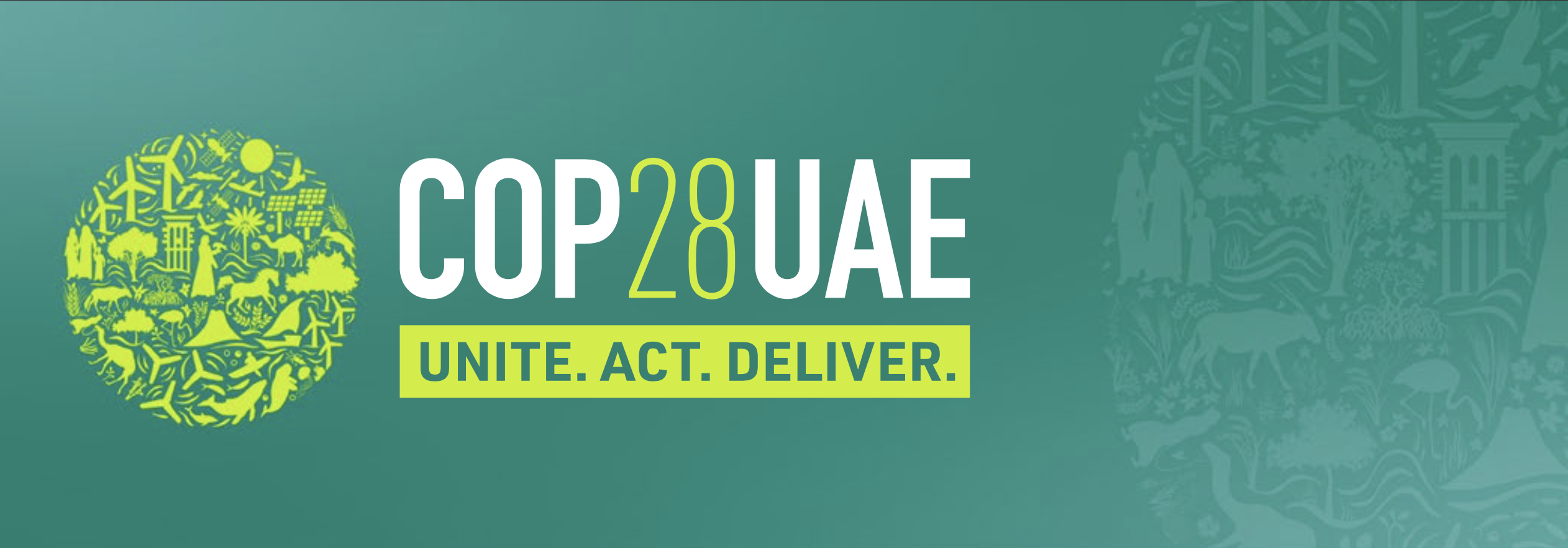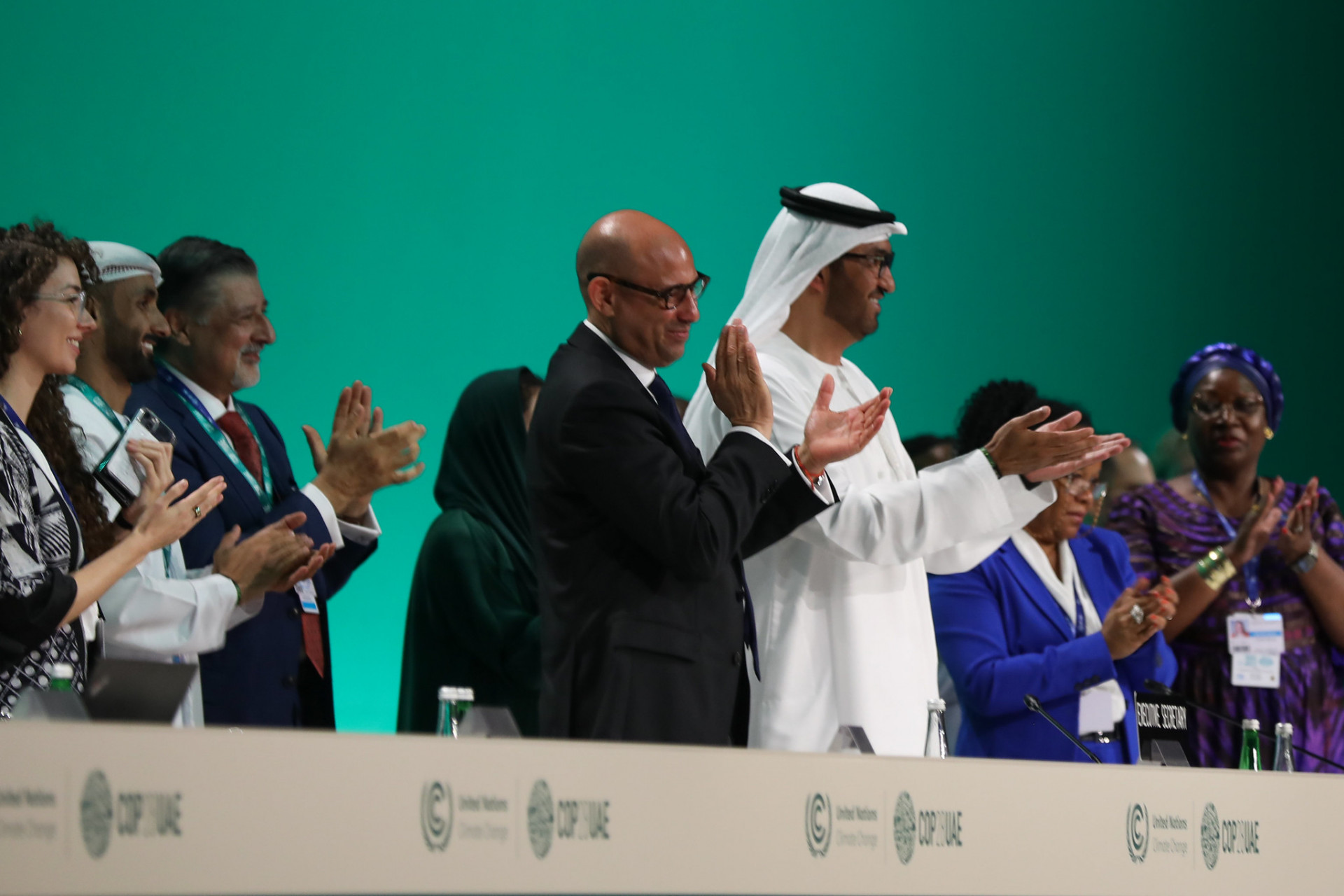Overview
The UN Climate Change Conference, also known as COP 28, is gearing up to take place in the United Arab Emirates (UAE).
Scheduled to start on November 30 till December 12, 2023, this annual climate summit aims to bring together over 70,000 delegates. Their coordinated objective is to expedite the global energy transition and significantly reduce emissions.

Prime Minister Narendra Modi arrived in Dubai last evening to actively participate in COP 28.
What is COP 28?
COP 28 officially marks the 28th meeting of the Conference of the Parties (COP) to the UN Framework Convention on Climate Change (UNFCCC). As the only multilateral decision-making forum on climate change, it convenes yearly. It boasts near-universal membership, including representatives from nearly every country worldwide.

Against current global events, this year’s COP 28 gains added significance. The geopolitical landscape, marked by the aftermath of the Israel-Hamas war and Russia’s ongoing “special military operation” in Ukraine, adds a layer of complexity to the discussions on climate action and international cooperation.
The opening of COP27 saw Sameh Shoukry, the Egyptian president, launch the summit and officially pass the baton of the presidency to the United Arab Emirates.
What are the key themes of COP 28?
COP28 is poised to unfold with several vital themes taking centre stage:
- Emissions mitigation targets
- Phase out fossil fuel
- Financing from developed nations
- Focus on industry-led solutions
- Low-carbon innovation
- Differences between developed and developing nations
- Progress on operationalising Paris Agreement Article
- Reform the role of private sector investment
These themes collectively shape the agenda for COP28, offering a comprehensive overview of the challenges and opportunities in the global effort to combat climate change.

What is India’s part in COP 28?
India’s role at COP 28 is pivotal, given its status as a developing nation with significant contributions to greenhouse gas emissions and the world’s largest population. Balancing ambition with equity is a crucial aspect for India as it navigates the negotiations at the summit.
Given its dual role as a significant emitter and a nation with vast population needs, India’s stance will likely emphasise a forward-looking approach while ensuring fairness in its commitments. The negotiations for India will involve a delicate balance of give and take, considering the country’s unique challenges and responsibilities.
One of India’s primary expectations from COP28 is the establishment of a clear roadmap on climate financing.
During a press conference, Foreign Secretary Vinay Mohan Kwatra highlighted the importance of climate finance and technology in global efforts to address environmental degradation.
He expressed India’s anticipation for a concrete roadmap at COP28, emphasising its significance in achieving new collective, quantified goals. The expectation is that a well-defined plan on climate finance will play a crucial role in fulfilling the shared objectives outlined at the summit.
PM Narendra Modi Arrives in Dubai
Prime Minister Narendra Modi is set to participate in the COP 28 meeting in Dubai on Friday, December 1.
Leaving for the United Arab Emirates (UAE) on Thursday evening, he aims to contribute to the annual climate summit.

In a briefing on Thursday, Foreign Secretary Vinay Kwatra clarified that despite the prime minister’s participation in the COP 28 meeting, he is expected to return to India later in the evening on Friday.
According to Kwatra, Prime Minister Modi is set to make a significant impact at COP28. His agenda includes delivering a keynote address at the opening session of the World Climate Action Summit. In addition to addressing the main COP28 summit, the prime minister will actively participate in three high-level side events.
Two of these side events are co-hosted by India, highlighting the nation’s collaborative efforts on the global stage. The first event, co-hosted by India and the UAE in Dubai, focuses on the Green Credit program, a notable initiative announced by the Ministry of Environment in October this year.

The second side event, co-hosted by India and Sweden, involves the launch of LeadIT 2.0. This initiative, initially introduced in 2019 at the UN Climate Action Summit in New York, serves as a leadership group for energy transition. It promotes collaboration between decision-makers from the public and private sectors, aiming to accelerate the industry’s growth to net-zero emissions.
Furthermore, Prime Minister Modi will participate in another high-level event titled “Transforming Climate Finance,” hosted by the presidency of COP28, the UAE.
Alongside these engagements, the prime minister has a series of bilateral meetings with counterparts from various nations on the sidelines of the UAE’s COP28 World Climate Action Summit.












Comments 2